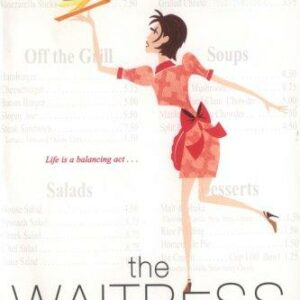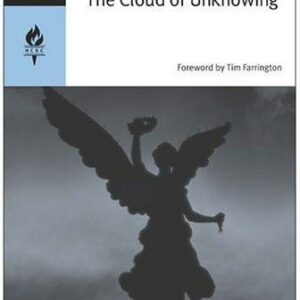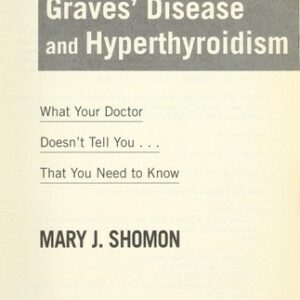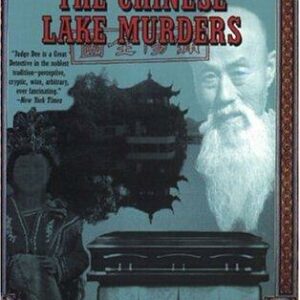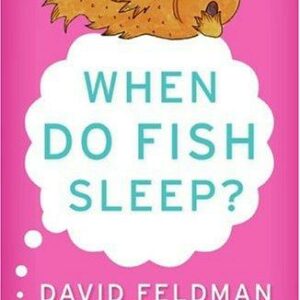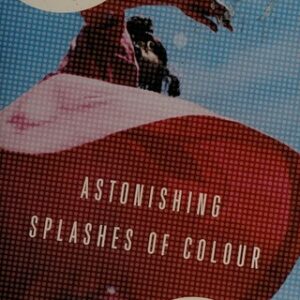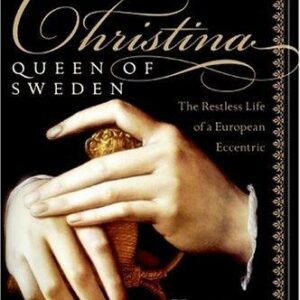The New French Wine [Two-Book Boxed Set]
$135.00
| Title | Range | Discount |
|---|---|---|
| Trade Discount | 5 + | 25% |
- Description
- Additional information
Description
The first definitive guide to contemporary French wines and producers in a deluxe two-book package, from a two-time James Beard Award winner
A WASHINGTON POST BEST WINE BOOK OF THE YEAR
This comprehensive and authoritative resource takes readers on a tour through every wine region of France, featuring some 800 producers and more than 7,000 wines, plus evocative photography and maps, as well as the incisive narrative and compelling storytelling that has earned Jon Bonné accolades and legions of fans in the wine world. Packaged in a deluxe slip case and Built upon eight years of research, The New French Wine is a one-of-a-kind book set exploring the world’s most popular wine region. First, examine the land through a thoroughly reported narrative overview of each region—the soil and geography, the distinctive traditions and contemporary changes. Then turn to the second book, which is a comprehensive reference guide to the producers and their wines, similarly detailed by region. From Burgundy to Bordeaux and everywhere in between, this is sure to be the resource on modern French wine for decades to come.“While a number of wine books promise to make great gifts, there’s certainly no better—or more beautiful—present for the Francophile or wine aficionado in your life than The New French Wine.”—The Spruce Eats
“I wish I’d had this book years ago. Jon’s total immersion in the nuts and bolts, and above all the personnel, of French wine in all its glorious variety, is a gift for all of us who love it. An essential read.”—Hugh Johnson, author of The World Atlas of Wine
“The New French Wine delivers on the promise of its title. The producer profiles make a perfect companion for ‘wine people’, aspiring wine people, and also, those who like to know!”—Stephen Satterfield, founder of Whetstone Media and Peabody Award–winning host of Netflix’s High on the Hog
“I’m going to be buying this book for every wine lover in my life…This project is obviously a true labor of love, and it shows on every page.”—Besha Rodell, New York Times columnist and The Age restaurant critic
“Deeply insightful, The New French Wine isn’t just the ultimate guide to what bottles really matter, but an opinionated love letter to the people, places, and cultures that make France the greatest wine country on Earth.”—Dan Keeling and Mark Andrew, co-founders of Noble Rot restaurants and magazine
“This book is an essential read for anyone who wants to stay current on what’s happening in France today!”—Rajat Parr, author of The Sommelier’s Atlas of Taste and Secrets of the Sommeliers
“In two astonishing volumes Jon Bonné dispels the misty, romantic mythologies that persist about French wine.”—Bill Addison, Los Angeles Times restaurant critic
“The New French Wine is not just a reimagining of what a wine guide can be in both scope and style but the sort of landmark single-subject book that makes you forget whatever came before it.”—Talia Baiocchi, editor in chief of Punch
“Staggering in both breadth and depth, The New French Wine is not only an essential reference but a joy to read.”—Peter Liem, author of Champagne
“An epic achievement, The New French Wine is much more than a wine guide; it is a state-of-the-nation snapshot of contemporary France.”—Bronwen and Francis Percival, authors of Reinventing the Wheel
“Jon Bonné’s latest two-volume set is a wonderful resource for all wine-lovers.”—Annie Shi, partner and beverage director of King and Jupiter restaurants
“The New French Wine is and will continue to be a crucial reference for generations to come.”—Lindsey Tramuta, bestselling author of The New Paris and The New Parisienne
“The New French Wine is an absolute must read.”—Karina Iglesias, co-owner of NIU KitchenJon Bonné is one of the leading American voices on wine and food. Currently the managing editor of Resy, he previously spent nearly a decade as the wine editor and chief wine critic of the San Francisco Chronicle, and served as the lifestyle editor and wine columnist for MSNBC, the U.S. columnist for Decanter magazine, and the wine consultant for JetBlue Airways. His work has earned him three Roederer Awards—the most ever won by an American, including for his groundbreaking book The New California Wine—and has been recognized by the James Beard Foundation nearly a dozen times. Introduction
C’est compliqué.
It’s complicated. This is the answer to nearly everything in France, in wine as in other things. Over the past decade, I’ve heard no other phrase more often. It is the mantra of French vignerons, of the French themselves. C’est compliqué can be evasive, a way to elide an awkward detail. “France is complicated,” Dominique Joseph says, pouring me a glass of chenin blanc pét-nat, by way of not explaining in detail why he’s allowed to label it only as low-grade mousseux. More often, it’s a means of expressing something complex, for which the answer isn’t obvious. Tell me more about stirring lees without opening a barrel? Compliqué. Splitting up your family’s land? Bien compliqué. Village politics? Ainsi compliqué.
Two decades into the twentyfirst century, the state of French wine is très compliqué. I mean that in the best way. French wine is in the midst of a simmering revolution—really revolutions, plural—arguably the biggest transformation since the end of World War II. And a new French wine is emerging. The legendary appellations that were formalized in the first part of the twentieth century have spun through a full life cycle. The best remain vital and evolving, charting a contemporaneous path. Regions such as Champagne and Beaujolais are enjoying the positive effects of change—recrafting themselves as obsessed with the specificity of place as Burgundy. Maps of their lieux-dits, individual vineyard parcels with names and histories, are proliferating in much the way the old Pitiot and Poupon maps of the Côte d’Or once did.
Other parts of France may have fame but not the will to evolve—as with Saint-Emilion or Provence, which are wrestling with the dark side of compliqué, the growing pains of the postmodern. They are reckoning with the forces that have always directed French wine toward its worst nature; deep seeds of rural conservatism, the entropy of a self-satisfied industry unwilling to evolve, and the lure of easy money through exploiting the appellation system’s Achilles’ heel—in which reputation is allowed to stand in for quality.
The state of wine in France matters because France is (and, with luck, forever will be) the soul of the global wine industry. Its grape varieties remain benchmarks around the world. Cabernet sauvignon and pinot noir—and chenin blanc, gamay, and so on—are the base material for so many other wine regions, whether it be California or the Adelaide Hills, or even Tuscany. And reference examples from France remain just that: precedents by which other places measure their progress.
And yet the romantic legacy view of France, the one that launched a thousand wine dreams, has largely passed into the past tense—if, in fact, it ever truly existed. For at least the past twenty years, French wine has been simultaneously destroying and re-creating itself, mostly for the better. A talented generation of pioneers has come of age, one that understands the deep value of French terroir— its traditions, its renown. It has the courage to see the difference between terroir as a timeless expression of the uniqueness of a place, and terroir as a marketing trope, exploited for easy gain. Look no further than the lengthy project by Muscadet producers to discover and capture their different terroirs in a region long known as an engine for simple, cheap white wine.
These promising changes, in nearly every corner of France, are what got me started on this project the better part of a decade ago. I’d spent nearly a decade in California as the wine editor and chief critic for the San Francisco Chronicle, immersed in the beautiful evolution that state’s own wine industry was enjoying. I captured that change in my first book, The New California Wine. But I needed a change of my own.
When I was growing up, my wine-loving father shared with me his love of two places in particular: France and California. He took me to visit both. Although I knew the importance of French wine before we boarded that old L-1011, nothing would solidify it like the grand tour my family took when I was thirteen, staying in towns such as Vouvray and Saint-Emilion (along with nonwine stops, like Les Baux-de-Provence and the intriguingly named Condom, which teenaged me found hilarious). Seeing these wine villages during their mid-1980s heydays catalyzed how vital and definitional French wine was, a beacon for the rest of the world. That view, regardless of my deep love for California, and my flirtations with Australia and Chile and wherever, never wavered. So, it wasn’t a hard sell when my editor, over one too many glasses of unsulfured gamay in an Oakland wine bar, suggested, “What about France?”
I’d paid close enough attention from the West Coast, some six thousand miles away, to have a rough sketch of the changes in France; indeed, many of the positive changes in California were inspired by French progress. The idea of immersing myself in France was irresistible. Little did I know what I agreed to. As a wine-producing country, France is massive and complex—more than a dozen major regions, depending on your count, and nearly 750,000 hectares in vine.
To really traverse every wine corner of France would require feet on the ground for a very long time: at least thirty thousand kilometers in an endless succession of rental cars, hundreds of nights in small French towns, countless grocery trips to Leclerc, and too many meals in small bistros, where I discovered that, for all the positive change with wine, French gastronomy was facing a crise de coeur. Not everywhere: In Paris, and also in Nantes, Bordeaux, and Angers, a new generation of chefs are cooking without formality—thus making their food a perfect accompaniment to a beautiful new cluster of wines. But that energy tapers when you reach most small towns; the beauty of countryside cooking in France has largely fallen prey to grim economics and changing habits—another chip away at the old French myth.
If French wine today is gloriously complicated, it is transforming in a country that has become devilishly complex in the twenty-first century. President Emmanuel Macron, elected as a controversial centrist in 2017, would push (sometimes awkwardly) his fellow French toward a more modern, Europhilic, and progressive way of life. His stances exposed the last shards of the country’s parochial, self-interested tendencies—a nation encased in a sort of Boomerera torpor, one born after the strikes, protests, and upheaval of 1968. That era’s upheaval created a social system that was extraordinary in its generosity, but also inflexible and unable to evolve as the decades rolled on. When outsiders shake their heads at the entitlement of French pensioners, or the benefits accorded the perennially unemployed, it’s because France prides itself on a safety net that has, better than many, steered clear of the deep inequalities about which French economist Thomas Piketty warned his fellow countrypeople. But it also has contributed to a sense of stagnation, a sort of ambient anticapitalism that has often dampened the French economy.
So France is evolving, whether it wants to or not, and becoming more aware of how it needs to modernize. The same is true with wine’s role in French life. The idea of wine as an everyday staple has increasingly evolved to the notion of wine as a small pleasure. The petit coup de rouge many Frenchmen once took to start their days is an anachronism. (Mostly. Some older gents at my local bar in Paris’s 11th arrondissement disprove this each morning.) And wine is no longer the widespread anchor of rural economies that it once was, although it remains the most valuable sector of French agriculture.CN
Additional information
| Weight | 127.4 oz |
|---|---|
| Dimensions | 3.3700 × 8.4500 × 10.6100 in |
| Imprint | |
| Format | |
| ISBN-13 | |
| ISBN-10 | |
| Author | |
| Audience | |
| BISAC | |
| Subjects | wine books, normandy, bordeaux, wine making, wine gifts, gifts for wine lovers, wine lover gifts, French wine, wine guide, burgundy, Alsace, french books, france travel guide, wine book, wine gift, chateau, chardonnay, wine bible, wine coffee table book, rouge, sauvignon blanc, merlot, new french wine, bartender gifts, Cooking, Cookbooks, CKB034000, french cooking, french, stocking stuffers, France, wines, rose, wine, travel book, Alcohol, red wine, provence, champagne, white wine, sommelier, pinot noir, cabernet sauvignon, beverages, James Beard, TRV009050 |


